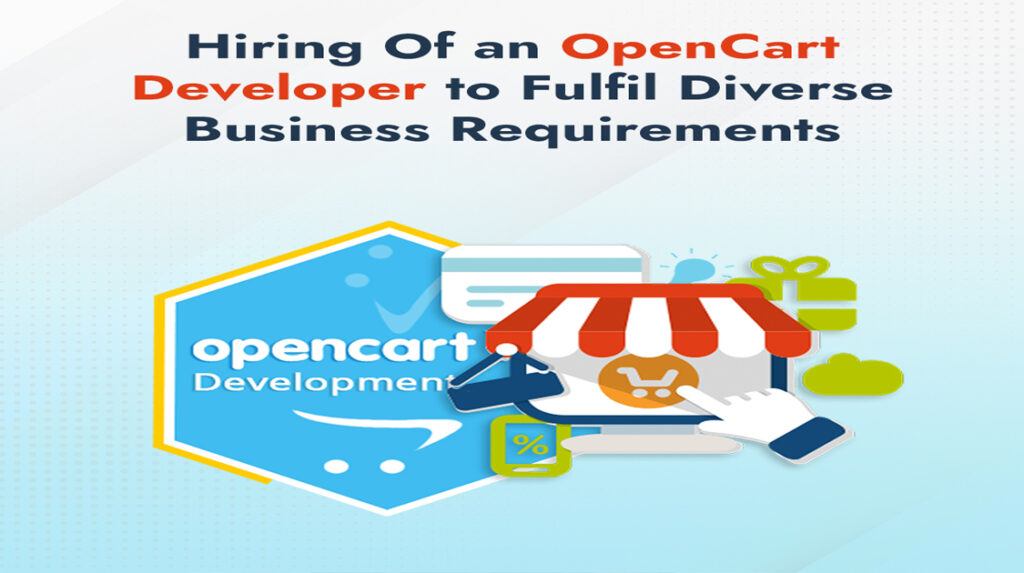
OpenCart is an open-source e-commerce platform that allows you to create and manage online stores. It provides a user-friendly interface, a wide range of features, and a robust extension system.
Here’s an overview of OpenCart development:
- Installation and Setup: Start by downloading the latest version of OpenCart from the official website. Install OpenCart on your web hosting server following the provided installation instructions. Configure the basic settings, such as the store name, URL, and database credentials.
- Store Configuration: Access the OpenCart administration panel and configure the store settings. Set up the store’s currency, language, tax rates, shipping methods, payment gateways, and other essential configurations based on your business requirements.
- Theme Selection and Customization: Choose an OpenCart theme that matches your store’s branding and design preferences. OpenCart offers a variety of free and premium themes. Customize the selected theme by modifying colors, fonts, layouts, and other design elements to create a unique look and feel for your store.
- Product Management: Add and manage your products in the OpenCart administration panel. Create product categories, specify attributes and options, set prices, manage stock levels, and upload product images. OpenCart provides a user-friendly interface for efficient product management.
- Extension Integration: Enhance the functionality of your OpenCart store by integrating extensions. OpenCart has a vast marketplace with various extensions for features like SEO optimization, payment gateways, shipping methods, marketing tools, analytics, and more. Install and configure the desired extensions to meet your store’s specific requirements.
- Custom Development: If the available extensions do not fulfill your unique needs, you can develop custom modules or extensions for OpenCart. OpenCart follows the MVC (Model-View-Controller) architecture, making it relatively straightforward to create custom functionality by coding in PHP and utilizing OpenCart’s APIs.
- SEO Optimization: Optimize your OpenCart store for search engines to improve its visibility and organic traffic. Use SEO-friendly URLs, write compelling product descriptions with relevant keywords, optimize meta tags and headings, and implement SEO extensions or plugins. Focus on creating unique and keyword-rich content to improve search engine rankings.
- Testing and Quality Assurance: Thoroughly test your OpenCart store to ensure its functionality, compatibility, and user experience. Test product ordering, payment processing, shipping methods, and other critical features. Check the store’s responsiveness across different devices and browsers to ensure a consistent user experience.
- Security Measures: Implement security measures to protect your OpenCart store from potential vulnerabilities. Keep the OpenCart core and extensions up to date with the latest security patches. Use secure payment gateways, configure SSL certificates for secure data transmission, and regularly back up your store’s data.
- Ongoing Maintenance and Support: Regularly update OpenCart and installed extensions to benefit from new features, bug fixes, and security patches. Monitor your store’s performance, analyze customer behavior, and address any technical issues promptly. Provide customer support and respond to inquiries to ensure a positive shopping experience for your customers.
OpenCart offers a comprehensive e-commerce solution with a range of features and customization options. By leveraging OpenCart’s capabilities and customizing it to meet your specific business requirements, you can create a robust and user-friendly online store.